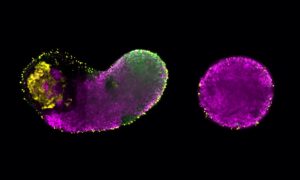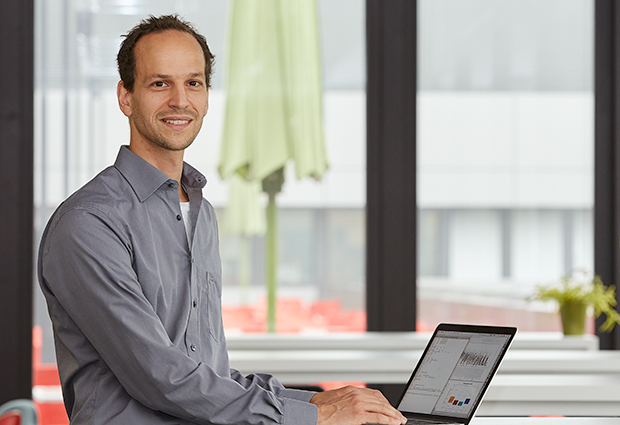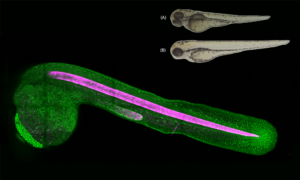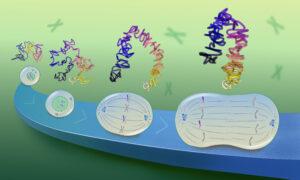
Welcome: Georg Zeller
Team leader investigates how the gut microbiome could relate to human diseases

The Zeller team at EMBL Heidelberg is investigating the microbiome – an ecosystem of bacteria, viruses, and other creatures invisible to the naked eye – in the context of human health and disease. Using techniques in bioinformatics, computational biology and microbiology, the team will be developing methods and software tools to analyse microbiome data from clinical studies.
What I really like about science is that it’s very curiosity-driven. It’s a lot about freedom. From the big questions I investigate, down to how I organise my day
What impact would you like your research to have?
I would really like to contribute to a better understanding of how the gut microbiome is perturbed. It could be dietary effects, it could be lifestyle effects, it could be side effects of drugs. There are now a lot of clinical studies that have looked at diseases that may be associated with changes in the microbiome, like type II diabetes. I would really like to contribute to the development of software tools and data-analysis techniques that facilitate studies like these.
Whose work at EMBL intrigues you? Do you have any future collaborations in mind?
It’s been fascinating to see how research around the microbiome, or more generally prokaryotic systems biology, has gained momentum at EMBL. When I came here as a postdoc in 2010, Peer Bork’s group was probably the only one that was interested in the microbial ecosystems! Since then, Kiran Patil, Nassos Typas, and Theodore Alexandrov have all joined this field. A while before I learnt that Nassos had joined EMBL as a new group leader, I was fascinated by his work on high-throughput phenotyping of E. coli exposed to a large variety of chemical stresses— and of course I was thrilled to collaborate with him. Now I’m really looking forward to finishing one of these joint projects and I am very excited about the future prospects of collaborating with him, Peer, Kiran and others at EMBL. Beyond that, Oli Stegle from the EBI is really inspiring. I’m looking forward to working together to explore how his statistical genomics technology can be applied to microbiome data analysis.
What is your philosophy for running your lab?
I am really keen on having an open group with a friendly and respectful atmosphere. I want people to know that they can approach me to bring up any problem, and we can discuss it. We also try to put in extra effort to make our research more open to the outside.
What will you be looking for as you build your group?
I look mostly for people with programming skills, data analysis skills, some exposure to statistics and maybe machine learning. As for personality, I would like to have people that openly communicate their research within and beyond the group. They should interact with people, and be open to collaborations and take up the challenge of being part of these bigger networks in the Bio-IT community.
Do you offer any services alongside your research?
Yes, by supporting the Bio-IT community at EMBL and the German network for bioinformatics infrastructure (de.NBI), we seek to bring together computational biologists and bioinformaticians and foster communication between them.
What advice do you wish you had received at the start of your career?
In my experience, it’s hard to plan for a career in science. It becomes more difficult if you focus on one career path. It’s not good to stress yourself with the idea that you need to make that Nature paper, or get a PI position. You need to stay a little bit open-minded. If you just enjoy what you’re doing at the moment, then great things, in many cases, will happen.
Related links
- What's a microbiome? How on Earth do they work? Find out – 'Microbiomes: Our humble overlords', EMBLetc, 22 May 2016
- Zeller team, EMBL
- Bork group, EMBL
- Patil group, EMBL
- Typas group, EMBL
- Alexandrov team, EMBL
- Stegle group, EMBL-EBI
- Bio-IT community at EMBL
- German network for bioinformatics infrastructure (de.NBI)


